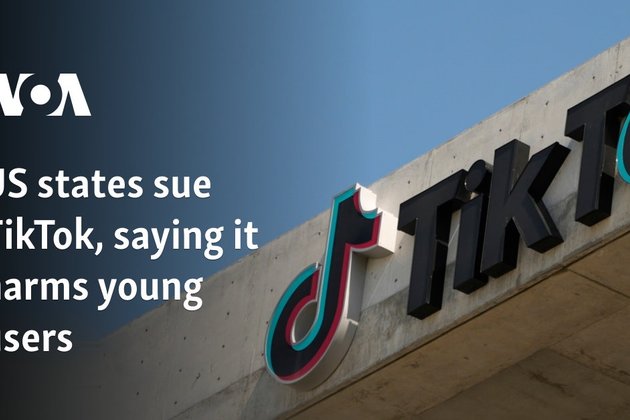TikTok faces new lawsuits filed by 13 U.S. states and the District of Columbia on Tuesday, accusing the popular social media platform of harming and failing to protect young people.
The lawsuits, filed separately in New York, California, the District of Columbia and 11 other states, expand Chinese-owned TikTok’s legal fight with U.S. regulators and seek new financial penalties against the company.
Washington is located in the District of Columbia.
The states accuse TikTok of using intentionally addictive software designed to keep children watching as long and often as possible and misrepresenting its content moderation effectiveness.
‘TikTok cultivates social media addiction to boost corporate profits,’ California Attorney General Rob Bonta said in a statement. ‘TikTok intentionally targets children because they know kids do not yet have the defenses or capacity to create healthy boundaries around addictive content.’
TikTok seeks to maximize the amount of time users spend on the app in order to target them with ads, the states said.
‘Young people are struggling with their mental health because of addictive social media platforms like TikTok,’ said New York Attorney General Letitia James.
TikTok said on Tuesday that it strongly disagreed with the claims, ‘many of which we believe to be inaccurate and misleading,’ and that it was disappointed the states chose to sue ‘rather than work with us on constructive solutions to industrywide challenges.’
TikTok provides safety features that include default screentime limits and privacy defaults for minors under 16, the company said.
Washington, D.C., Attorney General Brian Schwalb alleged that TikTok operates an unlicensed money transmission business through its livestreaming and virtual currency features.
‘TikTok’s platform is dangerous by design. It’s an intentionally addictive product that is designed to get young people addicted to their screens,’ Schwalb said in an interview.
Washington’s lawsuit accused TikTok of facilitating sexual exploitation of underage users, saying TikTok’s livestreaming and virtual currency ‘operate like a virtual strip club with no age restrictions.’
Illinois, Kentucky, Louisiana, Massachusetts, Mississippi, New Jersey, North Carolina, Oregon, South Carolina, Vermont and Washington state also sued on Tuesday.
In March 2022, eight states, including California and Massachusetts, said they launched a nationwide probe of TikTok impacts on young people.
The U.S. Justice Department sued TikTok in August for allegedly failing to protect children’s privacy on the app. Other states, including Utah and Texas, previously sued TikTok for failing to protect children from harm. TikTok on Monday rejected the allegations in a court filing.
TikTok’s Chinese parent company, ByteDance, is battling a U.S. law that could ban the app in the United States.

